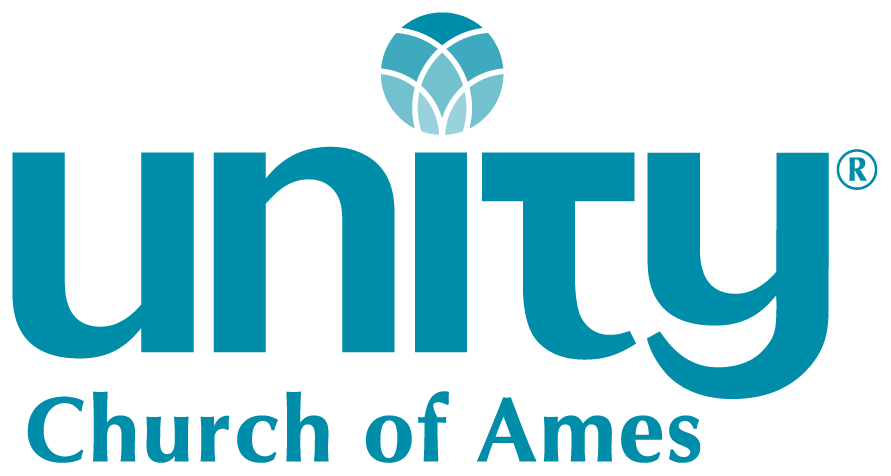Midweek Faith Lift
March 11, 2020
Our guest speaker on Sunday, March 8, 2020 was Joshua Inacio. Please go to our website, www.unityofames, to experience his talk on our video. For your reflection this week, I share an exerpt from the latest book Drinking From the River of Light; The Life of Expression, by Mark Nepo, one of my favorite authors.
The Monkey and the River, by Mark Nepo
January 31, 2020By Mark Nepo
When people are at a loss, the guide ferries them over. When one is (awake), one ferries oneself.
—Hui-Neng
The simplest and hardest thing to do each day is to be here–fully, completely, without turning away. There’s a story I love about a master who sends his apprentice to meditate by a river until he’s learned all the river has to say.
The apprentice is earnest and devoted. He spends several hours finding the right place to sit. At first, he sits very near the bank, but all he can hear is the rush of the river. He’s too close. Then he moves to the top of the hill overlooking the river. Now he’s too far. Finally, he settles midway beneath a willow. He sets out his special blanket and sits on his special pillow and begins to meditate. Quickly, he dozes off. When he wakes, he feels guilty to have wasted time. He strains to focus and tries even harder.
After three days, the apprentice is exhausted and has a terrific headache. Just then, a monkey happens along and jumps in the river, splashing and yapping and hooting. This cracks the apprentice who begins to weep. Not sure what has happened, he gathers his things and returns to tell all to his master. His master sighs and puts his hand on the young man’s shoulder and says, “Ah, the monkey heard. You just listened.”
Sometimes, we get so lost in our practice and devotion that we forget that the goal is to get wet. There is much we can learn from watching, but observing at its best enlivens us to participate. The aim of watching the river of life is to join the river of life. Likewise, the goal of expression and writing in particular is to enter what the words point to.
In the 1600s, the legendary Japanese poet Basho spoke about the mystery of deep listening in this way:
Go to the pine if you want to learn about the pine, or to the bamboo if you want to learn about the bamboo. And in doing so, you must let go of your preoccupation with yourself. Otherwise you impose yourself on the object and don’t learn. Your poetry arises by itself when you and the object have become one, when you have plunged deep enough into the object to see something like a hidden light glimmering there. However well phrased your poetry may be, if your feeling isn’t natural — if you and the object are separate — then your poetry isn’t true but merely (accurate) counterfeit.
The reward for entering life so completely is that we become one with the life before us. The authenticity of poetry leads us to this union. As a cancer survivor, I’m compelled to extend Basho’s wisdom to the realm of healers by casting his thoughts this way:
Go to the ill if you want to learn about suffering, and to their spirits if you want to learn about truth. And in doing so, you must let go of your preoccupation with yourself. Otherwise you impose yourself on the patient and don’t learn. Your diagnosis arises by itself when you and the patient have become one, when you have plunged deep enough into the patient to see something like a hidden light glimmering there. However well phrased your diagnosis may be, if your feeling isn’t natural — if you and the patient are separate — then your diagnosis isn’t true but merely (accurate) counterfeit.
When we watch from the outside and think we are on the inside, we are misled into a prison of false living, where our insights might be accurate but counterfeit because we have refused to enter the life we are watching. This subtle but deadly distance between life and us can form a film over our understanding of life. This mental distance is exacerbated in our age by the flood of reality TV through which we vicariously think we are living while only watching others live. The honest life of expression is a timeless antidote for watching. It brings us closer to the hidden light glimmering in all things.
Our understanding of practice deepens with a constant pledge to enter life more fully. We learn to open our eyes in order to see, and we learn to open our heart in order to love. To do this, we need to watch but not to make a home of our watching. At some point, we may even need to retreat from the world in order to be in the world, the way a chick matures in an egg in order to be born. In this way, the awakening of our soul is an apprenticeship that leads to the practice of being kind and useful in the streets.
The honest life of expression is a timeless antidote for watching. It brings us closer to the hidden light glimmering in all things.
An Invitation to Enter More Than Watch
In your journal, write a poem or story about someone who watches life and how they are prompted by love or suffering to enter life.
In conversation with a friend or loved one, describe a time you watched and a time you joined, exploring the difference as you experienced it.
Excerpted from Drinking From The River Of Light: The Life of Expression by Mark Nepo. Copyright ©2019 by Mark Nepo. Published by Sounds True in September 2019
